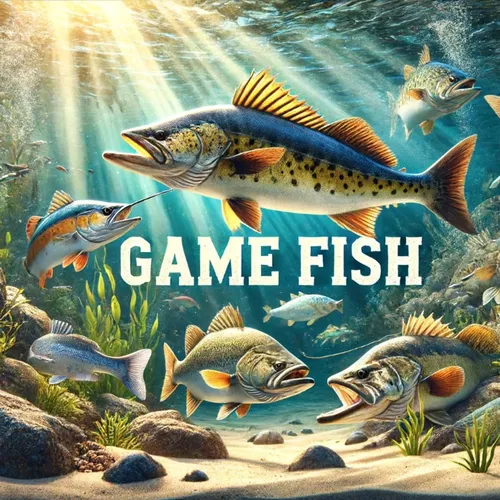Game and Fish Agencies Boost Conservation, Funding, and Recreational Opportunities Across the U.S.
- Author
- Quiet. Please
- Published
- Sat 23 Aug 2025
- Episode Link
- https://www.spreaker.com/episode/game-and-fish-agencies-boost-conservation-funding-and-recreational-opportunities-across-the-u-s--67491025
A number of important developments have shaped Game and Fish news in the United States over the past week, with a focus on conservation initiatives, funding support, regulatory changes, and major events celebrating the contributions of key individuals and organizations. According to the International Game Fish Association, August saw notable advocacy achievements in recreational fishing and aquatic conservation, including support for the Sport Fish Restoration and Boating Trust Fund reauthorization in Congress. This legislation, if passed, will channel excise taxes on fishing gear and boating fuel into critical conservation projects and recreational access through 2031. The same advocacy confirmed Florida’s allocation of fifteen million dollars toward restoring the Ocklawaha River, a project expected to significantly improve fish habitats like eelgrass and saltmarsh and open new opportunities for anglers and boaters.
In the Southeast, the Arkansas Game and Fish Foundation is preparing for its thirty-fourth Outdoor Hall of Fame induction at the Statehouse Convention Center in Little Rock. This annual event, scheduled for August twenty-third, will honor conservation leaders and raise funds for the state’s ongoing wildlife management and outreach efforts. Foundation president Deke Whitbeck says the event also serves as the unofficial launch of the fall hunting season and unites outdoor enthusiasts, officials, and industry partners in celebration of Arkansas’s rich recreational traditions.
Meanwhile, in Tennessee, the Fish and Wildlife Commission concluded its August meeting in Nashville, approving operational budgets for the years twenty twenty-six and twenty twenty-seven. Agency officials described new marketing efforts to recruit and retain hunters and anglers, along with plans to expand public access to Herb Parsons Lake and other sites. New naming conventions were introduced for improved clarity, reflecting a broader effort to enhance the visibility and usability of wildlife areas for both current and future generations.
In the western United States, the Montana Fish and Wildlife Commission held its meeting in Helena, which included final actions on hunting permit allocations for species such as moose, bighorn sheep, and mountain goat, as well as decisions on river access and management rules. The commission emphasized the importance of extensive public comment in regulatory decisions and voiced continued support for transparent and equitable policies.
Elsewhere, Alaska’s Department of Fish and Game announced the expansion of its Mountain Goat Identification Quiz to all hunting units, a move designed to promote sustainable hunting by encouraging accurate identification of sex in goats to protect populations for the long term.
On the national scale, the United States Fish and Wildlife Service announced the distribution of fifty-five million dollars in State Wildlife Grant funding. According to the agency, these grants support nationwide projects that protect at-risk species, restore habitats, and bolster state-led wildlife management, reinforcing proactive efforts to maintain healthy ecosystems and avert federal protection listings.
These developments display a consistent pattern: increasing investment in habitat restoration, greater public engagement in rulemaking, a widening focus on hunter and angler participation, and heightened recognition of individuals’ contributions to conservation. This coordinated activity reflects a national drive to secure both wildlife health and public access for the future.
Some great Deals https://amzn.to/49SJ3Qs
For more check out http://www.quietplease.ai
